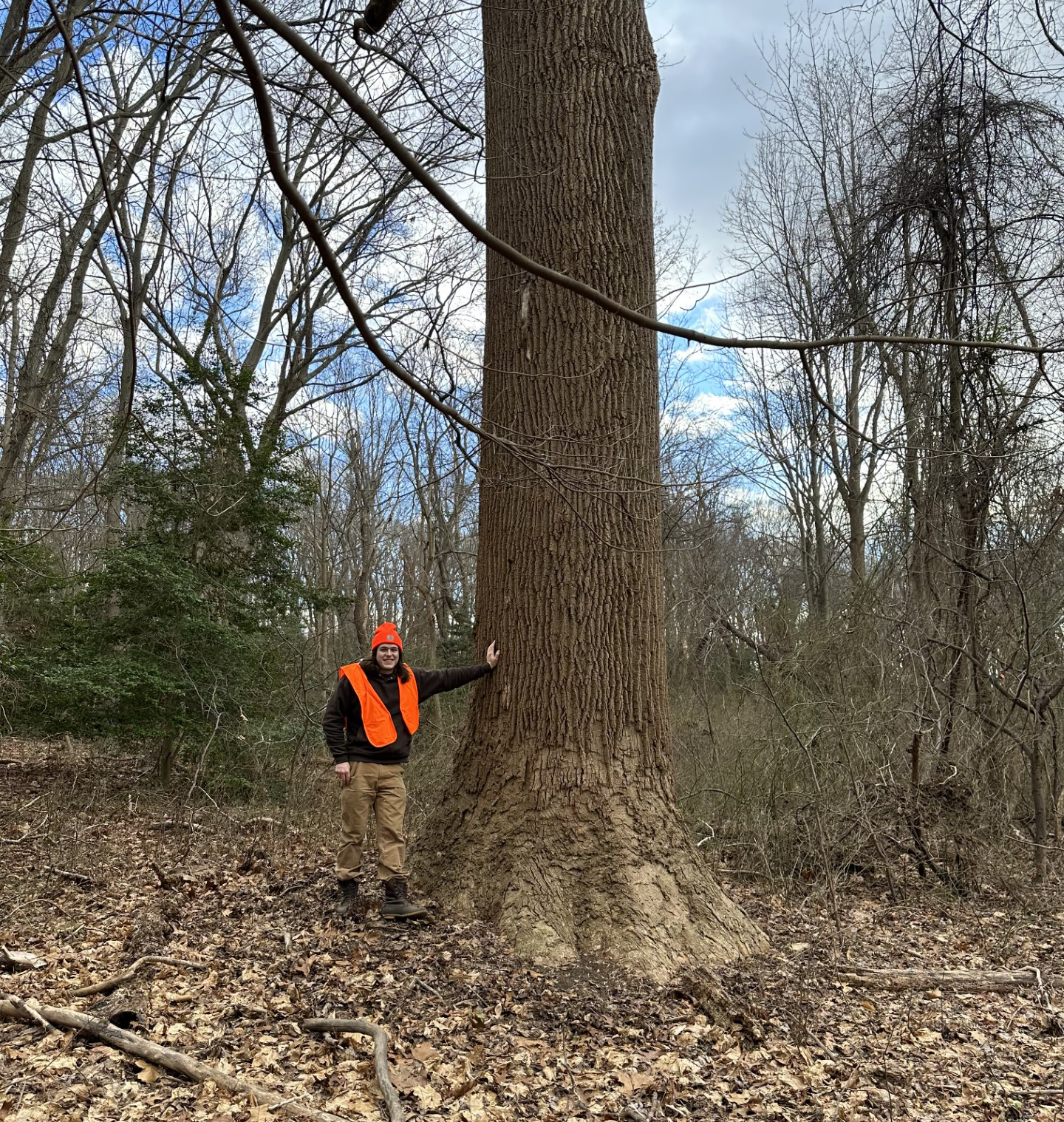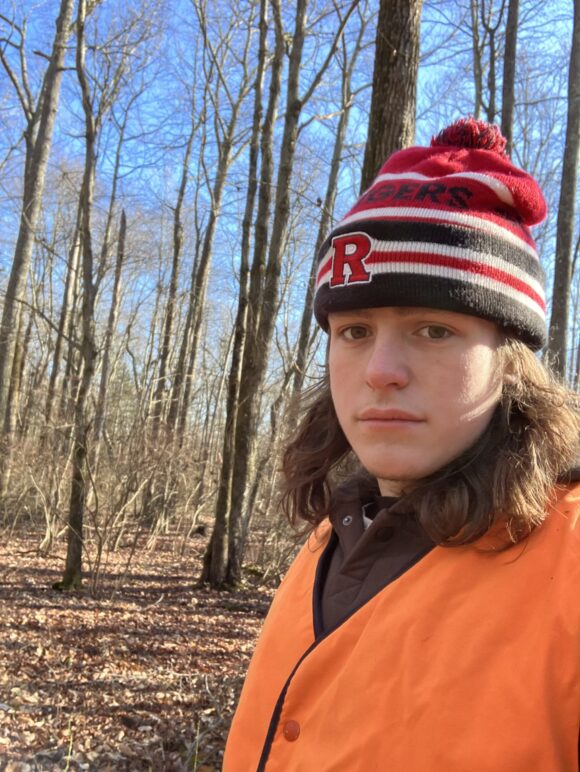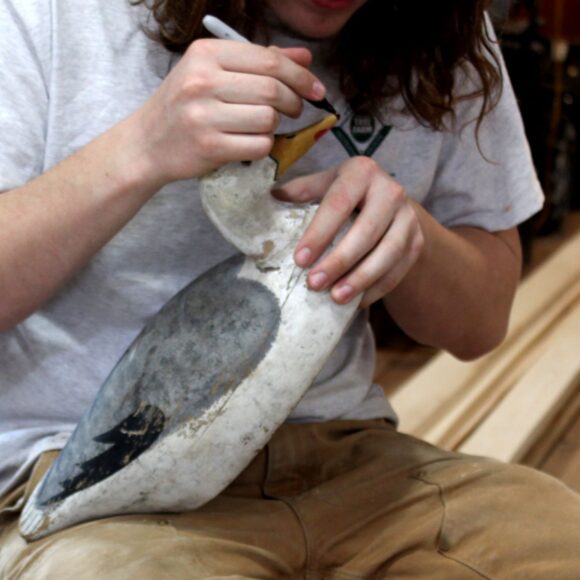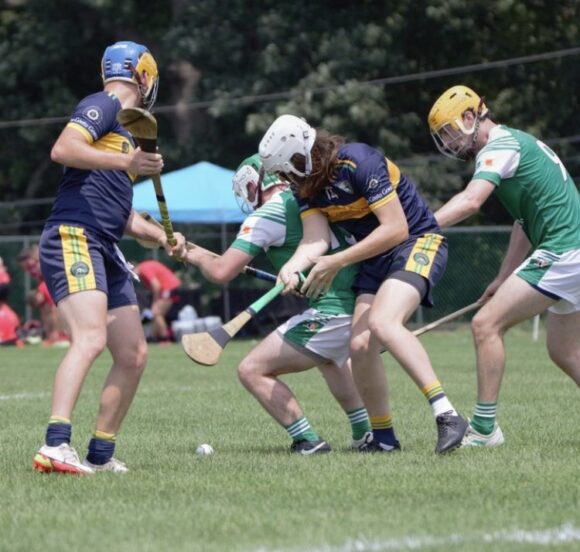
Augustus Haas (SEBS’25) stands next to a big Tulip poplar in Middletown, NJ.
Among the faces on the Cook campus this fall is Augustus Haas, a transfer student looking to complete his undergraduate degree at Rutgers. He’s a junior in the Ecology, Evolution, and Natural Resources (EENR) major at the School of Environmental and Biological Sciences (SEBS).
Augustus earned an associate’s degree in forestry at, a small private school in the Adirondacks, NY, where he learned the practical side of the field like how to fell trees, drive skidders and mark trees for harvest.
 He embarked on the path to complete his undergraduate degree at SEBS, tapping into the school’s broad EENR curriculum and its Urban Forestry Program.
He embarked on the path to complete his undergraduate degree at SEBS, tapping into the school’s broad EENR curriculum and its Urban Forestry Program.
He came to forestry totally by chance.
“I hadn’t planned to go to college until half way through my senior year of high school. I decided I wanted to study something in the environmental field, and after researching a bunch of different majors, forestry seemed the most interesting to me.”
Augustus mainly grew up in Atlantic Highlands in Monmouth County, although he lived in Essex County until he was 12 years old. His father graduated from Rutgers-Newark with a bachelor’s degree in English. He also has a cousin enrolled there.
Even without the family connection to the university, “it’s hard not to know about Rutgers when you grow up in New Jersey. Maybe those advertisements on the toll booths on the parkway were my first experience ‘seeing’ Rutgers,” he jokes.
Having spent the last two years of study in forestry and coming to Rutgers to continue on this path, he has some specific career goals in mind.
“I’m hoping to stay in New Jersey and work in the field of consulting forestry, which mainly deals with private landowners. I have also been considering urban forestry in NYC or up in North Jersey.”
So far, he has found the field of forestry fulfilling. “Being only two years in, I feel like I have learned so much and see a real value in the field.”
He intends to use science and his experiential learning to make a difference.

Augusts Haas adds lipstick to a duck decoy that he carved.
“One thing I’ve learned in my time studying forestry and practicing it in New Jersey is that there needs to be more awareness of the industry in the mainstream, especially locally. Forestry can get a bad rap for a variety of reasons, and to many it isn’t seen as even necessary when it is in fact integral to both society and nature.”
Outside of his interest in forestry, Augustus feels the need “to belong to a larger community or take part in traditions in some way” and he uses two of his hobbies to get that sense of connection that he craves.
“I carve duck decoys, which I feel is an integral part to New Jersey’s history and folk culture, as there is a large community of people that carve different birds in their own ways, coming to a different finished product via different means, and it all can depend on where you are in our small state.”
Augustus, who is part German, part Irish, also plays hurling – an Irish sport that’s thousands of years old, and is “as much of an expression of Irish culture as it is an incredible sport.”

Augustus Haas, second from right, “pulling” on the ball in a hurling game in Pennsylvania.
He is planning to start a hurling club at Rutgers. While participating in the sport gives him a sense that he’s “connecting back” to that part of his lineage, his last ancestors to come directly from Ireland to the U.S. dates back in the 1860s.
“It was my girlfriend’s family who got me into hurling. Her grandmother came directly from County Cork, Ireland, and her cousins play hurling at the inter-county level, which is pretty much the hurling equivalent of the NBA or NFL.”

